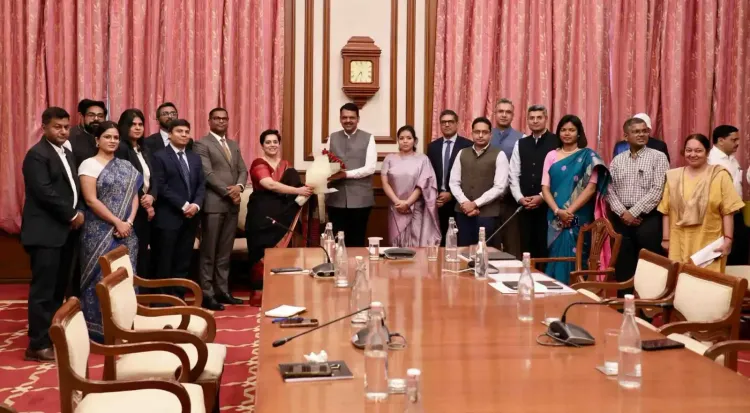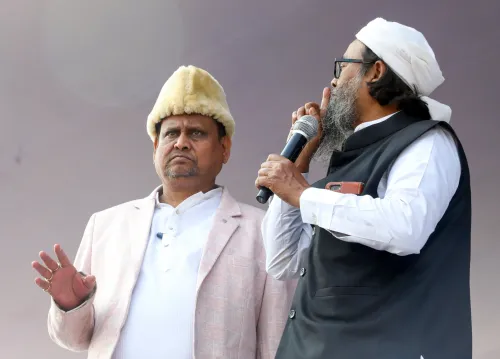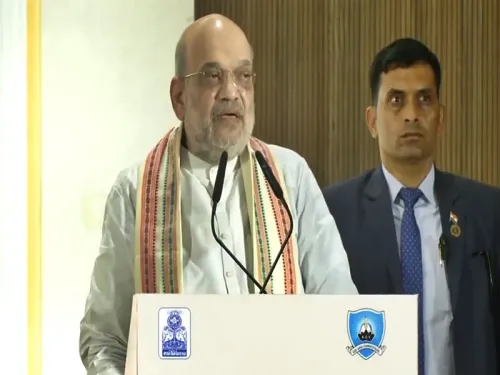Can Mumbai Achieve a $1.5 Trillion Economy?

Synopsis
Key Takeaways
- Mumbai's economy has the potential to reach $1.5 trillion.
- The Vadhvan Port will be a major economic driver.
- An Educity is set to enhance educational opportunities for students.
- Efforts are underway to boost agricultural loans for farmers.
- Mumbai will undergo significant transformation in the next five years.
Mumbai, May 19 (NationPress) - Chief Minister Devendra Fadnavis announced on Monday that the city possesses the potential to establish an economy worth $1.5 trillion. He elaborated that the upcoming Vadhvan Port is projected to be three times larger than JNPT and will rank among the world's top ten ports.
This new port is set to foster a transformative economy over the next 20 years, according to Fadnavis during a discussion with 14 officers from the Indian Foreign Service.
He emphasized the necessity of developing the port for Mumbai's growth, with plans for a coastal route underway. Additionally, the region will see the development of a third Mumbai, facilitated by the Atal Setu, connecting Mumbai and Navi Mumbai.
The dialogue also addressed various national and international topics, including Maharashtra's global investment potential, its role in foreign policy, and ongoing international projects within the state, as per the government release.
Moreover, the Chief Minister proposed the establishment of an Educity in Mumbai, which will comprise 12 universities across India, covering an area of 200 acres and accommodating around 100,000 students.
Furthermore, a new Innovation City will be created on 300 acres, while a Knowledge City is set to be built on 1,000 acres, aimed at positioning Mumbai as a leader in technology. Fadnavis asserted that residents will witness a dramatically transformed Mumbai within the next five years.
Earlier on the same day, in an effort to support farmers, Fadnavis instructed banks to issue agricultural loans without requiring a CIBIL score. The CIBIL score, a numeric summary of credit history ranging from 300 to 900, is critical for loan approvals; however, Fadnavis highlighted the negative consequences of denying loans, which could lead to farmer suicides and economic downturns.
“Failure to provide agricultural loans will have dire consequences. Banks should not insist on CIBIL scores from farmers. Immediate solutions must be implemented. The government has previously filed FIRs against banks that have neglected this issue. The Reserve Bank has clarified its stance on agricultural loans, and action will be taken against any branch that continues to demand CIBIL scores,” Fadnavis emphasized during the 167th meeting of the State Level Bankers Committee.
He urged nationalized banks to ramp up their efforts in supplying agricultural loans and to meet the targets set for the financial year 2025-26.
During the meeting, the state's credit plan for the 2025-26 financial year, totaling Rs 44,76,894 crore, was approved. Fadnavis reiterated that Maharashtra stands as a leading state in the country, highlighting the importance of farmers as the backbone of the economy. The Chief Minister underscored the need for nationalized banks to prioritize the supply of agricultural credit.










